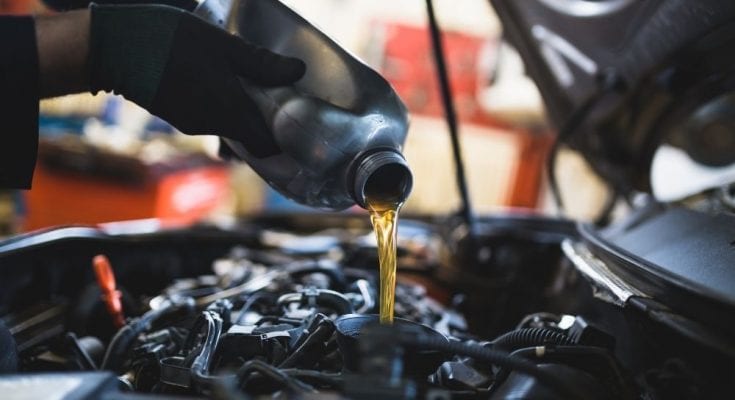Gear oil and engine oil each have a specific purpose in your vehicle. However, they look and even feel similar, so is there really a problem with confusing one with the other? In the greater scheme of things, yes, but the distinctions are subtle. For a quick breakdown, here are the differences between gear and engine oil.
Engine Oil
Engine oil, also known as motor oil, is what most people think about when they imagine any oil intended for automobiles or other vehicles. This is the oil that mechanics and other automobile professionals add to your car’s engine. Engine oil is a petroleum product derived from crude oil. A refinery separates the crude oil into water, oil, and other waste products. The remaining oil is then heated to an exceedingly elevated temperature, and through other processes, it’s then turned into a base oil. The base oil has several other chemicals added to it, including detergents, rust inhibitors, friction reducers, sealants, and others. Engine oil can be conventional or synthetic, but both help the engine run smoothly and keep its cool.
Gear Oil
What gear oil does and what it’s intended for are all in the name. Gear oil is intended to be a lubricant for transmissions, gear boxes, differentials, and other places where gears need to run smoothly. Gear oil has a high viscosity, as it needs to be thick and sticky enough to cover all the gears, bearings, and axles and to reduce friction without preventing these components from working. Gear oil is also useful for preventing parts from overheating while keeping water and other contaminants from entering and interfering with the system. Gear oil also contains additives to fight rust, oxidation, corrosion, foaming, pressure, and wear.
What’s the Difference?
Gear oil and engine oil seem to share a lot of similarities, so why aren’t they interchangeable? In most cases, gear oil tends to be thicker than engine oil, but that’s not always necessarily true. As you can see, they share many similar additives, but not the same ones. Engine oil features more detergents and dispersants, which have the job of clearing away the chemicals produced during internal combustion, which can interfere with performance. Gear boxes and similar systems don’t need these cleaners because they don’t produce the same waste products while lubricating gears, bearings, and axles.
Those are the primary differences between gear and engine oil. By and large, if you want keep your vehicle running without any serious issues or sudden stops, don’t mix them up!
What is engine oil?
Engine oil, also known as motor oil, is what most people think about when they imagine any oil intended for automobiles or other vehicles. This is the oil that mechanics and other automobile professionals add to your car’s engine. Engine oil is a petroleum product derived from crude oil.
What is gear oil?
Gear oil is intended to be a lubricant for transmissions, gear boxes, differentials, and other places where gears need to run smoothly. Gear oil has a high viscosity, as it needs to be thick and sticky enough to cover all the gears, bearings, and axles and to reduce friction without preventing these components from working.



